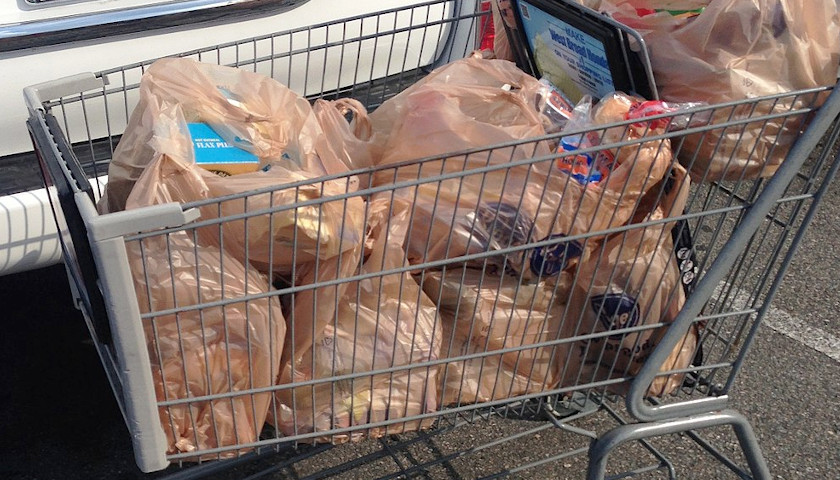The Roanoke City Council is considering a five-cent tax on disposable plastic bags, like grocery store or convenience store bags. On Monday, the Council agreed to schedule a public hearing on April 19.
The tax was legalized by the 2020 General Assembly. HB 534, introduced by Delegate Betsy Carr (D-Richmond), and SB 11, introduced by Senator Adam Ebbin (D-Alexandria), authorize localities to enact five-cent taxes on disposable plastic bags and require the localities to use revenue from the tax for environmental cleanup and to provide re-usable bags.
Roanoke isn’t alone in considering a plastic bag tax; the member governments of the Northern Virginia Regional Commission are also considering enacting a tax. Fairfax County Office of Environmental and Energy Coordination Deputy Director Susan Hafeli said the localities are waiting for guidelines from Governor Northam’s office, expected sometime after tax season. Hafeli said the localities want clarification of the statute.
“Any county or city may, by duly adopted ordinance, impose a tax in the amount of five cents ($0.05) for each disposable plastic bag provided, whether or not provided free of charge, to a consumer of tangible personal property by retailers in grocery stores, convenience stores, or drugstores,” one section of the statute states.
Hafeli told The Virginia Star, “The bags that would be subject to that tax are arguably defined in the statute. So, it might depend on the thickness of the bag, and it might depend on things like, I don’t know, are Targets one of the covered entities? Is Target a grocery store, convenience store or a drug store?”
Several states have enacted outright plastic bag bans, including California and New York, according to the National Conference of State Legislatures.
In a fact sheet, the Virginia Recycling Association said they supported a plastic bag tax, since bags are difficult to recycle and are a major source of litter and are the fourth-most-common form of marine debris.
“According to the Center for Biological Diversity, Americans use 10 billion plastic bags per year, with the average family bringing home 1,500 bags a year. Plastic bags, on average, are used about 12 minutes and only one percent of the bags are recycled. Plastic bags become a litter issue and are a problem for Virginia farmers because they degrade the soil and become entangled in their crop,” the sheet states.
But Virginia Manufacturers Association President Brett Vassey said plastic bag bans and taxes don’t address the root of the problem, which he says is “inadequate recycling infrastructure,” according to a 2020 Virginia Mercury article. In 2020, in a Richmond Times-Dispatch op-ed, Vassey argued in support of advanced recycling technology as a way to solve the problem of difficult-to-recycle plastics. In 2021, the General Assembly passed, and Governor Northam signed, a bill meant to support advanced recycling by adjusting some regulation. But the process is not yet wide-spread in Virginia.
“This revolution in innovation has the potential to completely transform the business landscape through supporting the transition toward a more circular economy, completely redesigning how we make a variety of products,” Vassey wrote.
If approved, the Roanoke proposal would go into effect January 1, 2022. But first, the city council will hear public comments, and then in a separate meeting, vote on the tax.
To register to comment in the April 19 public hearing, citizens must register with the Clerk’s Office for the City of Roanoke by noon on April 19. The comments will all be made remotely. To register, call the office at (540) 853-2541, or email [email protected].
– – –
Eric Burk is a reporter at The Virginia Star and the Star News Digital Network. Email tips to [email protected].
Photo “Plastic Bags” by Peteruetz. CC BY-SA 4.0.





Plastic bags were forced upon us in the 70’s to protect the environment from deforesting, and mfrs had cheaper and stronger than paper. Why should we be taxed for their screw up. They forced the change so the should pay for it!